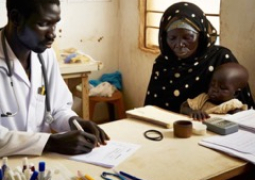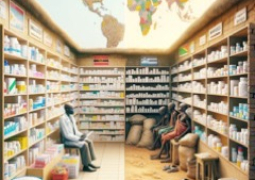
This moment, while a significant step forward, is not a time for celebration but rather a call for intentional, community-wide healing that may span generations. The path ahead requires a delicate balance of respect for cultural heritage and an unwavering commitment to the health, safety, and empowerment of our women and girls.
The emotions swirling through our communities in the wake of upholding the FGM ban are complex and often conflicting, creating a tapestry of pain, confusion, and hope that is uniquely Gambian. On one side, there's trauma - the physical and psychological scars borne by those who have undergone FGM. This trauma isn't just individual; it ripples through families and communities, affecting relationships and perpetuating cycles of harm. On the other side, there's shame - felt by those who have practiced or supported FGM, now confronted with the harmful nature of this tradition. This shame can lead to defensiveness or denial, hindering progress and healing.
According to the UNICEF Multiple Indicator Cluster Survey (2018), approximately 75.7% of women aged 15-49 in The Gambia have undergone FGM. This staggering statistic underscores the widespread nature of this practice and the immense challenge we face in addressing its aftermath.
In the Gambian context, these emotions are further complicated by our deep-rooted sense of community and respect for elders. The over-celebration of the ban, while well-intentioned, risks creating a heavy cloak of shame and anger for women who succumbed to the practice at a tender age when their agency was not in their custody. These women, our mothers, aunts, and grandmothers, find themselves caught between the trauma of their experience and the shame of having participated in or allowed a practice now deemed harmful.
This shame is particularly poignant in our society, where community approval and adherence to tradition are highly valued. Women who underwent FGM may feel a sense of betrayal - by their community for subjecting them to this practice, and now by society for condemning something they were told was necessary and good. This double burden of trauma and shame can lead to a range of psychological effects, including depression, anxiety, low self-esteem, and a fractured sense of identity.
Moreover, the ban and subsequent discourse risk creating a divide between generations. Younger Gambians, exposed to global perspectives and armed with new information, may find it difficult to understand or empathize with the choices of their elders. This generational gap can lead to family conflicts, further isolating those who are already grappling with trauma and shame.
It's crucial to remember that traditions, while deeply ingrained in our culture, can sometimes feel like peer pressure from our ancestors. Many harmful practices stem from misinformation and outdated attempts to control women's agency using the limited knowledge and technology of the time. However, recognizing this doesn't immediately erase the emotional and cultural significance these practices held for many. In the Gambian context, where respect for elders and tradition is paramount, questioning these practices can feel like a betrayal of one's heritage and community.
The path to healing will be long and challenging, requiring at least a generation to fully address the psychological scars left by FGM. This is where the millennial and Gen Z Gambians, evolving to be the new elders and statesmen of our nation, must lead the charge. Their unique position - bridging traditional Gambian values with global perspectives on human rights and health - makes them ideal leaders in this healing process.
These younger generations must approach this issue with empathy and understanding, recognizing the complex web of emotions surrounding FGM. They must create safe spaces for dialogue where women can share their experiences without fear of judgment. They must work to reframe the narrative around FGM, shifting from blame to understanding, from shame to empowerment.
Importantly, this new generation of leaders must also work to preserve the positive aspects of our traditions while discarding harmful practices. They must find ways to honor the wisdom and experience of our elders while also advocating for change. This might involve creating new rites of passage that celebrate womanhood without physical harm, or developing mentorship programs that allow older women to pass on their knowledge in ways that empower rather than restrict younger generations.
The healing process must also involve comprehensive mental health support, tailored to the Gambian context. This might include community healing circles, where women can share their experiences and support each other, or individual counseling that respects Gambian cultural norms while addressing trauma.
Ultimately, healing from the dual burdens of trauma and shame will require a delicate balance of acknowledging past harm while looking forward with hope. It will require us to hold space for complex emotions - allowing women to mourn what they've lost while also celebrating their strength and resilience. As we move forward, we must remember that there are no villains in this story - only victims of misinformation and misguided traditions. Our goal should not be to assign blame, but to support healing and ensure a brighter, healthier future for all Gambian women and girls.
A Holistic Approach to Healing and Empowerment
Healing must be our primary focus now. This healing needs to replace the community-centric nature of FGM with new, positive strategies that maintain the familial bonds and intergenerational knowledge transfer that were central to the practice. We must create new rituals and educational opportunities that promote the health and well-being of Gambian women and girls.
- Community Education Programs:
Develop comprehensive community programs where elder women pass down knowledge about menstrual hygiene, sexual health, and overall well-being to younger generations. These initiatives should incorporate modern healthcare information while respecting cultural values, creating a bridge between tradition and progress.
- School-Based Health Education:
Implement robust health education curricula in schools that cover not just reproductive health, but also mental health, nutrition, and general wellness. This education should start early and be age-appropriate, empowering girls with knowledge about their bodies and rights from a young age.
- Economic Empowerment Initiatives:
Launch programs that provide vocational training and microfinance opportunities for women, particularly those who may have been involved in FGM practices. Economic independence can be a powerful tool for changing mindsets and reducing vulnerability.
- Mental Health Support:
Establish community-based mental health services that are culturally sensitive and accessible. These should include support groups for FGM survivors and counseling services for families navigating this cultural shift.
- Legal Literacy Campaigns:
Conduct widespread legal literacy campaigns to ensure that all community members understand the laws protecting women and girls, including the ban on FGM. This knowledge can empower individuals to stand up against harmful practices.
- Male Engagement Programs:
Create initiatives that engage men and boys as allies in the fight against FGM and other forms of gender-based violence. This can include mentorship programs and community dialogues that challenge harmful gender norms.
- Alternative Rites of Passage:
Work with community leaders to develop alternative rites of passage that celebrate girls' transition to womanhood without harmful practices. These could include community ceremonies, educational retreats, or skill-building programs.
- Media Campaigns:
Utilize radio, television, and social media to spread awareness about the harms of FGM and promote positive messages about women's health and rights. These campaigns should feature local voices and stories to increase relatability and impact.
- Healthcare System Strengthening:
Invest in training healthcare providers to offer compassionate, culturally sensitive care to FGM survivors. This includes both physical and psychological support.
- Community Watchdog Programs:
Establish community-based monitoring systems where trained individuals can identify and report potential FGM cases, ensuring the law is enforced while maintaining community trust.
Addressing the Broader Context
It's crucial to understand that there were no victors in upholding this bill. As a nation with one of the worst health outcomes globally, we've spent too much energy on an issue that doesn't reflect the full potential and vibrant future possible for Gambian children. Now is the time to redirect that energy towards comprehensive healthcare improvements and education.
The government, alongside all stakeholders, must be intentional about championing the health and well-being of the girl child. This should focus primarily on psychological safety as a foundation to nurture girls who can hold their heads high with confidence and dignity. However, this focus must extend beyond just FGM to address other forms of gender-based violence and discrimination that limit girls' potential.
Healing takes time, and proper attention must be paid to both sides of this issue. We need more sensitization on health matters, and this fight must continue beyond activist circles. Community problems require solutions rooted in the community.
Mitigating Backlash and Ensuring Progress
As we move forward, we must be prepared for potential backlash. Some may view the ban as an attack on cultural values or an imposition of foreign ideals. To mitigate this:
- Engage Religious and Traditional Leaders:
Work closely with respected community figures to promote interpretations of religious and cultural texts that support women's health and rights.
- Create Safe Reporting Mechanisms:
Establish confidential, community-based systems for reporting FGM cases or plans, ensuring protection for whistleblowers.
- Cross-Border Cooperation:
Collaborate with neighboring countries to prevent "FGM tourism" where families might cross borders to perform the practice.
- Long-term Monitoring and Evaluation:
Implement robust systems to track the prevalence of FGM and the effectiveness of intervention programs, allowing for data-driven adjustments to our approach.
- Celebrate Progress:
Regularly acknowledge and celebrate communities and individuals who are champions for change, reinforcing positive behaviors and providing role models.
A Vision for the Future
As we move forward, let's commit to creating a Gambia where every girl child's potential is recognized and nurtured. Where traditions evolve to empower rather than restrict. Where the health and well-being of all citizens, particularly our women and girls, are prioritized.
This is not the end of our journey, but rather the beginning of a new chapter in our nation's story. A chapter of healing, growth, and unity. Together, we can build a future where the Gambian girl child thrives, unencumbered by harmful practices, and supported by a community committed to her well-being and success.
The path ahead is long and may be challenging, but with persistence, compassion, and a commitment to justice, we can create a Gambia where every girl and woman can live with dignity, autonomy, and the full realization of her human rights. This is not just a women's issue – it's a human rights issue, a public health issue, and a cornerstone of our nation's progress. Let us move forward together, healing our past wounds while building a brighter, more equitable future for all Gambians.
In peace, love and good health,
Dr. IDB.
For more information, follow the work of Dr. Badjie and his Innovarx WOW team on www.igh.gm and on social media @innovarxglobal or call +2866200.
Disclaimer: The information provided in this article is for general understanding and does not constitute a diagnosis. For specific concerns or detailed health advice, always consult your designated healthcare professional.



